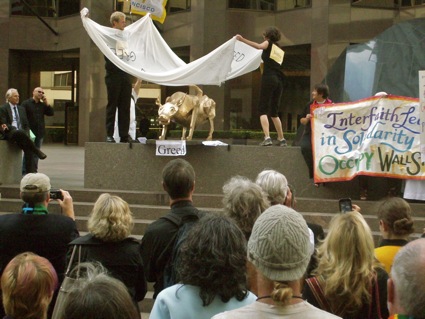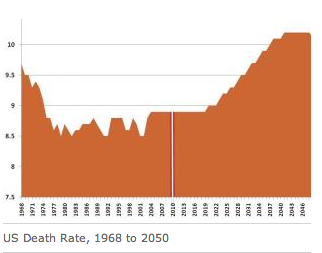This morning, Carol was reading aloud from an opinion piece in which the author took the Occupy Wall Street protesters to task because they didn’t criticize big government enough.
“That means he’s a right-winger,” I said. “Right-wingers all believe that big government is the problem. Left-wingers all believe that big business is the problem.”
Carol laughed, and the conversation moved on to something else.
But it’s true: in the U.S., as soon as a commentator reviles big business, you can bet that person is sympathetic with the Democratic Party, or the Green Party, or some other leftist organization. And as soon as a commentator reviles big government, you can bet that person sympathizes with, or is a member of, the Republican Party. Political differences in the United States have been reduced to that level.
This may be why I feel uneasy with both the left-wingers and the right-wingers in the United States. Even though most people would call me a leftist, I am skeptical of both big government and big business, especially since both devote little attention or energy to helping persons who happen to be poor. As a religious liberal, I want a society that is grounded in strong moral and ethical values. I maintain that, in these days of consumer capitalism, big business has given up all pretense of moral and ethical values, because it looks only to quarterly profits; while big government still clings to at least some pretense of adhering to moral and ethical values. Thus, because I revile big business more than big government, I must be a leftist.
At this point, I feel more comfortable with Occupiers than with the Republicans or the Democrats. The big problem in our society at this moment is neither big business nor big government: the real problem is that too many powerful people have abandoned moral and ethical precepts in favor of naked greed. As long as at least some of the Occupiers are willing to say that in public — as long as they are willing to excoriate naked greed — I consider that they are doing good work in the world. They still haven’t gone far enough in articulating a set of moral and ethical values I can affirm, but they’ve gone farther than anyone else.



